Traditional Ecological Knowledge in the Maesalong Region of Northern Thailand
Our experiences in this region and space have allowed us to have the opportunity to learn about the indigenous knowledge of the ecosystem and the ways in which people that inhibit this land use their knowledge in their everyday lives. Incorporated into this ecological knowledge is an understanding of sustainability, sustenance, and coexistence.
With this, we naturally found many differences in comparison to our societal experience in America and the ways in which these differing ideologies and practices impact communities, families, and culture in globalization. A study titled, Traditional agroforestry systems: a Methodological Proposal for its Analysis, Intervention, and Development says “On a global scale, society faces two major problems: hunger and poverty. Therefore, it is urgent to take measures to modify the forms of production, transformation, distribution, and consumption of food, to satisfy the growing demand for food in the world market” (Gomez, et al. 2021). The sustainability and holistic management are elements that have harsh impact on the relationships with food use and consumption, which we had the opportunity to visualize, and compare to our differing cultural prioritizations. In addition, the mountain landscapes presented in the Maesalong Region have vastly complex interlinkages with other ecosystems on a global scale (Ngwenya, et al. 2019), they are typically regions that are ecologically fragile and are affected by land use change, climate change, overexploitation of forest resources, intensive grazing, agricultural expansion, invasive species, economic change, and the expansion of settlements and population, to mention some of the many (Gupta, et al. 2021).
To put these findings to use, the Maesalong Region provided our group with a more specific understanding of the traditional ecological knowledge pertaining to the area and how the peoples of this region apply their beliefs into practice. Some of the many ways in which this was highlighted were within the sustainable farming at the coffee plantation, village settlement and spirit gate establishment, and local food use.
Sustainable Farming at the Coffee Plantation
- Thai sustainable ag program
- philosophy of introducing coffee farming = coffee plants require shade from older growth trees. This encourages preservation of older stands and mitigates the effects of slash/burn agriculture
- also, by encouraging preservation of older stands, clean/filtered water is also preserved in the watershed
With our time at the coffee plantation we learned a lot about the traditions that reflect sustainability and its relationship with economic ties being kept within the community. The coffee plantation leaders introduced the philosophy and strategy of their plantation; ((stuff about coffee plants require shade from older growth trees. this encourages preservation of older stands and mitigates the effects of slash/burn agriculture?))
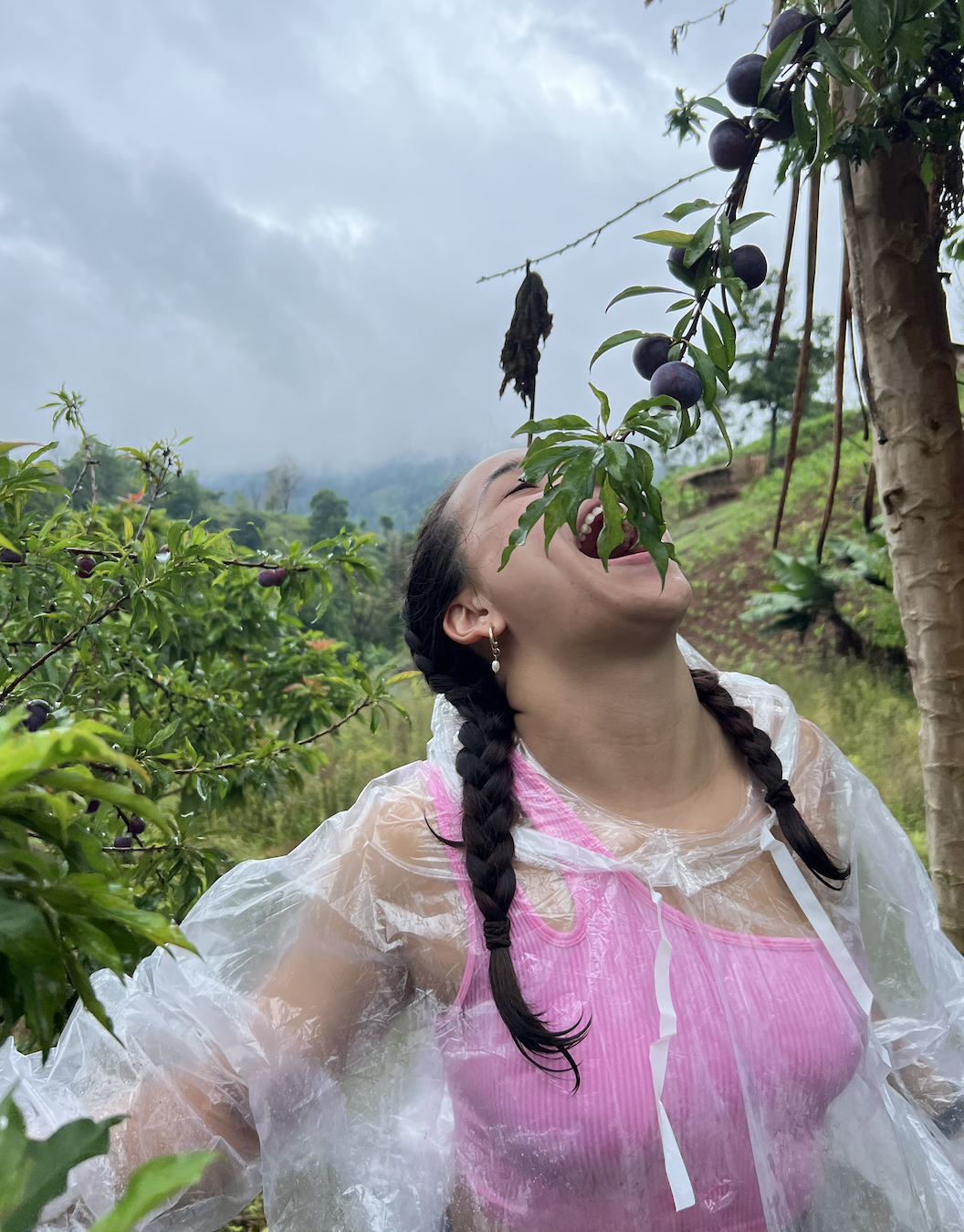
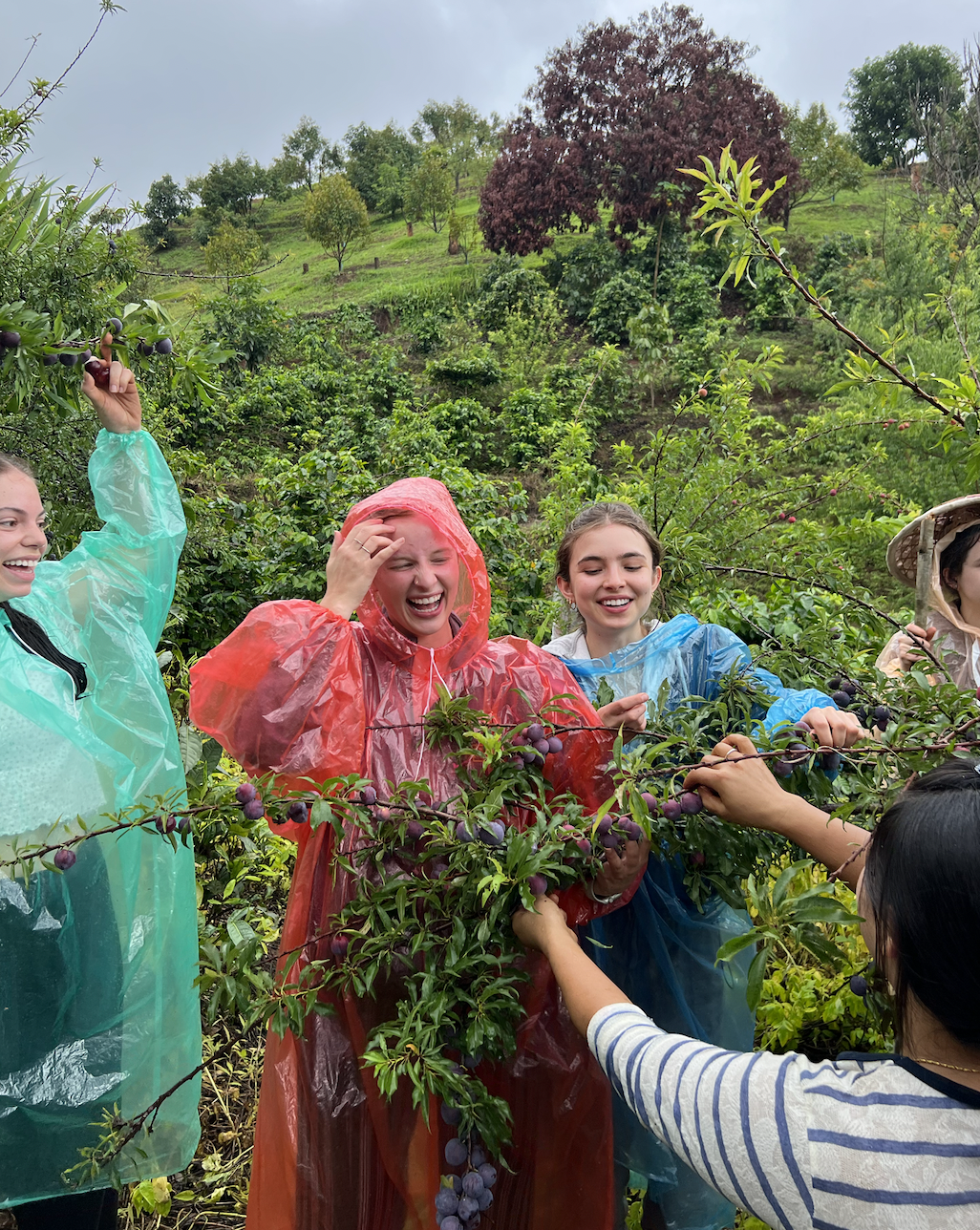
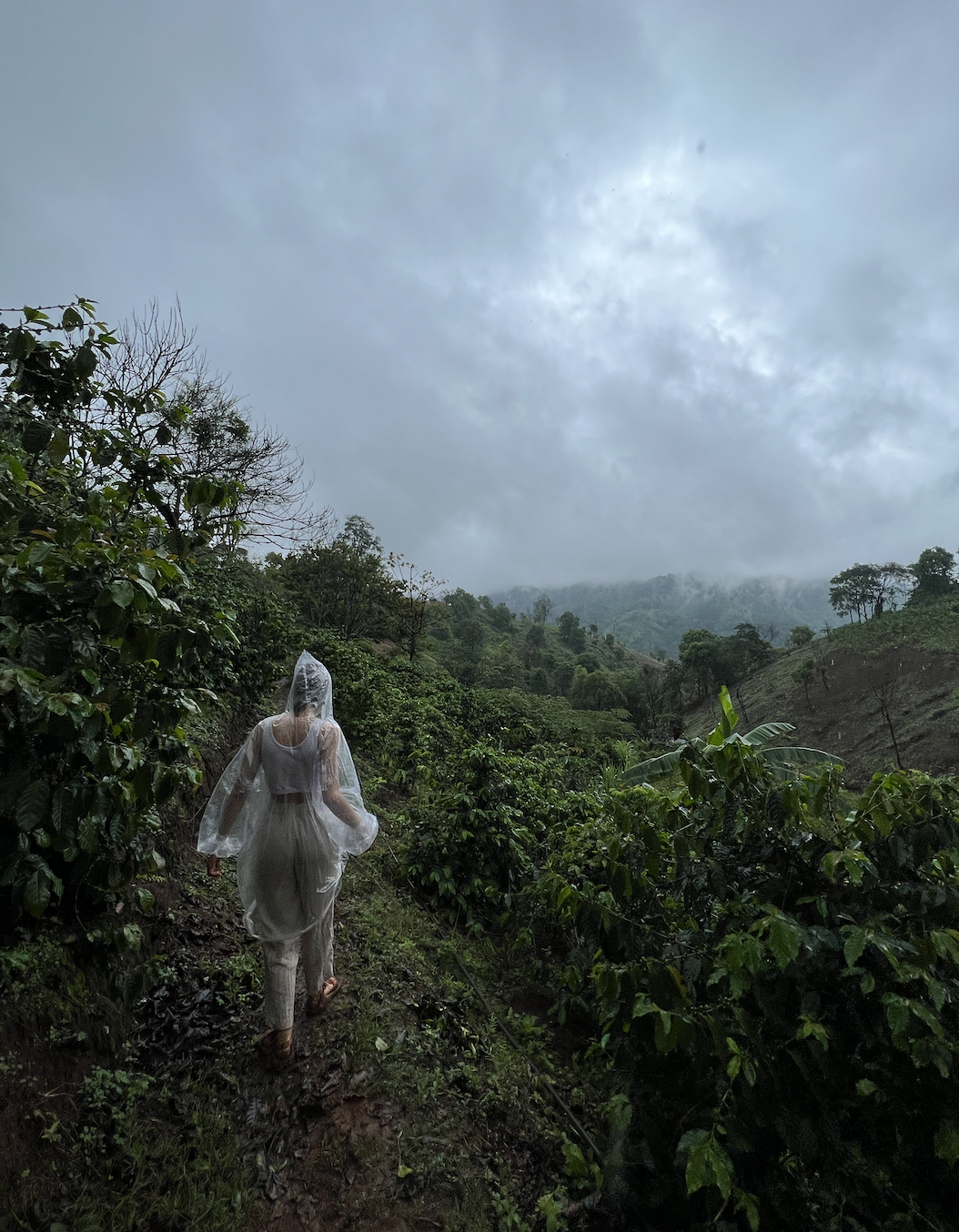
Village Settlement and Spirit Gate Establishment
- forest wisdom program
- understanding of looking for an area with many trees in order to guarantee water resource; this also ecologically makes sense because trees filter and source water
Another way in which ecological knowledge is intertwined in community is the village settlement and establishment of community and land relationships within villages. When we visited the Ahka village there was elaborate explanation about the processes that lead village leaders to choose a space for settlement; having a knowledge of the trees and plants in the location to better understand how to search for an area with a high density of trees in order to guarantee water resources. This also ecologically makes sense because trees would then filter and source water for the villagers.
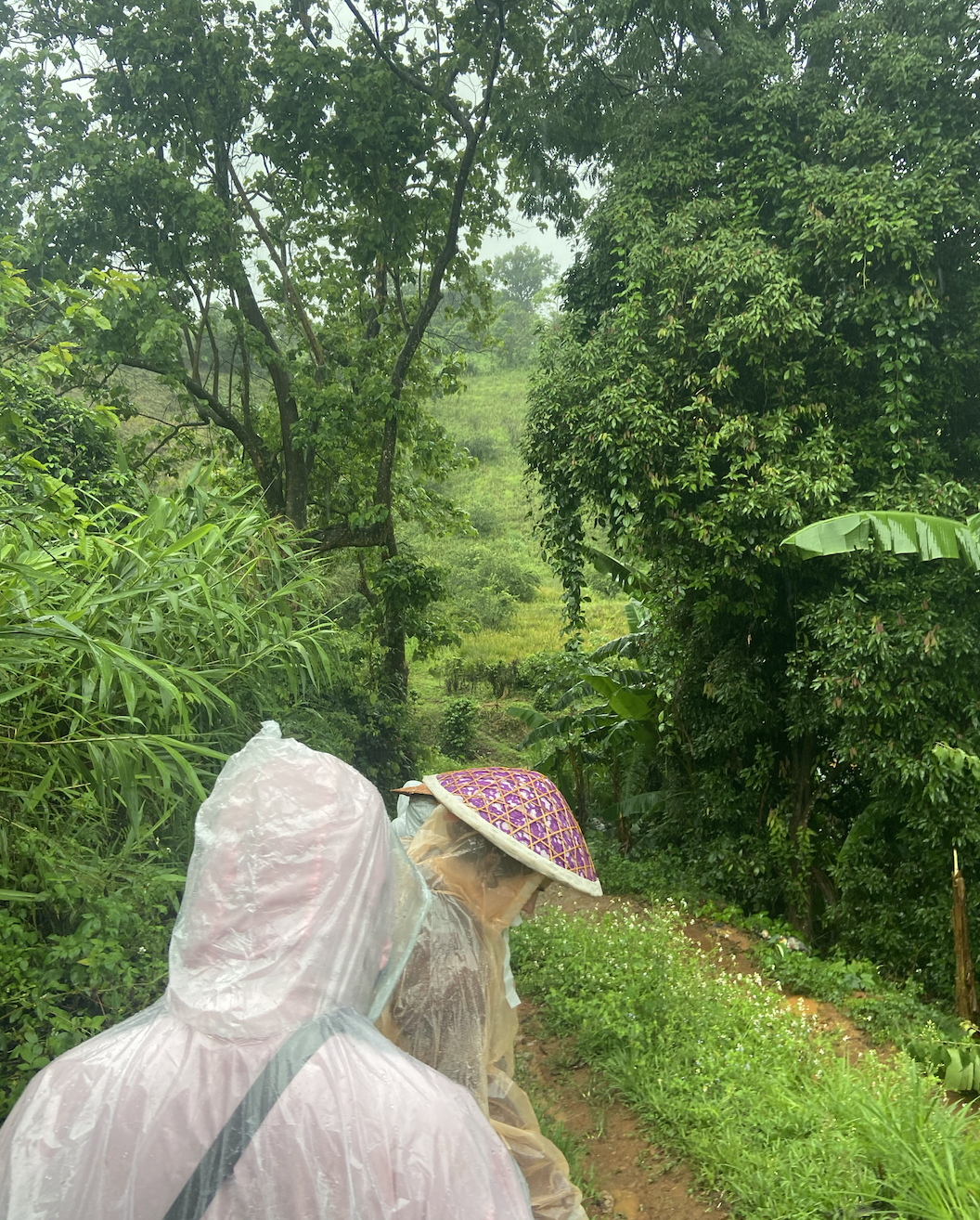
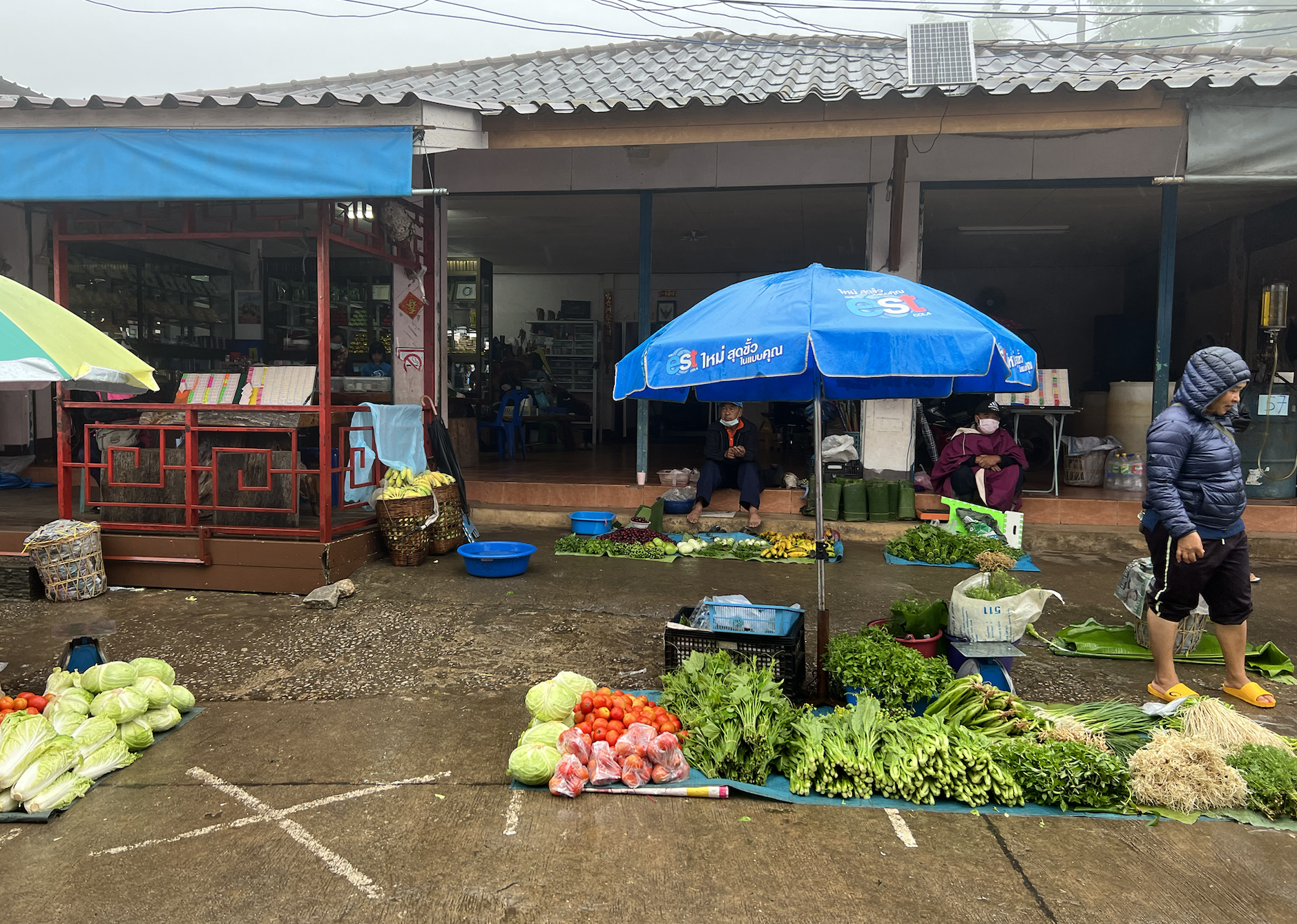
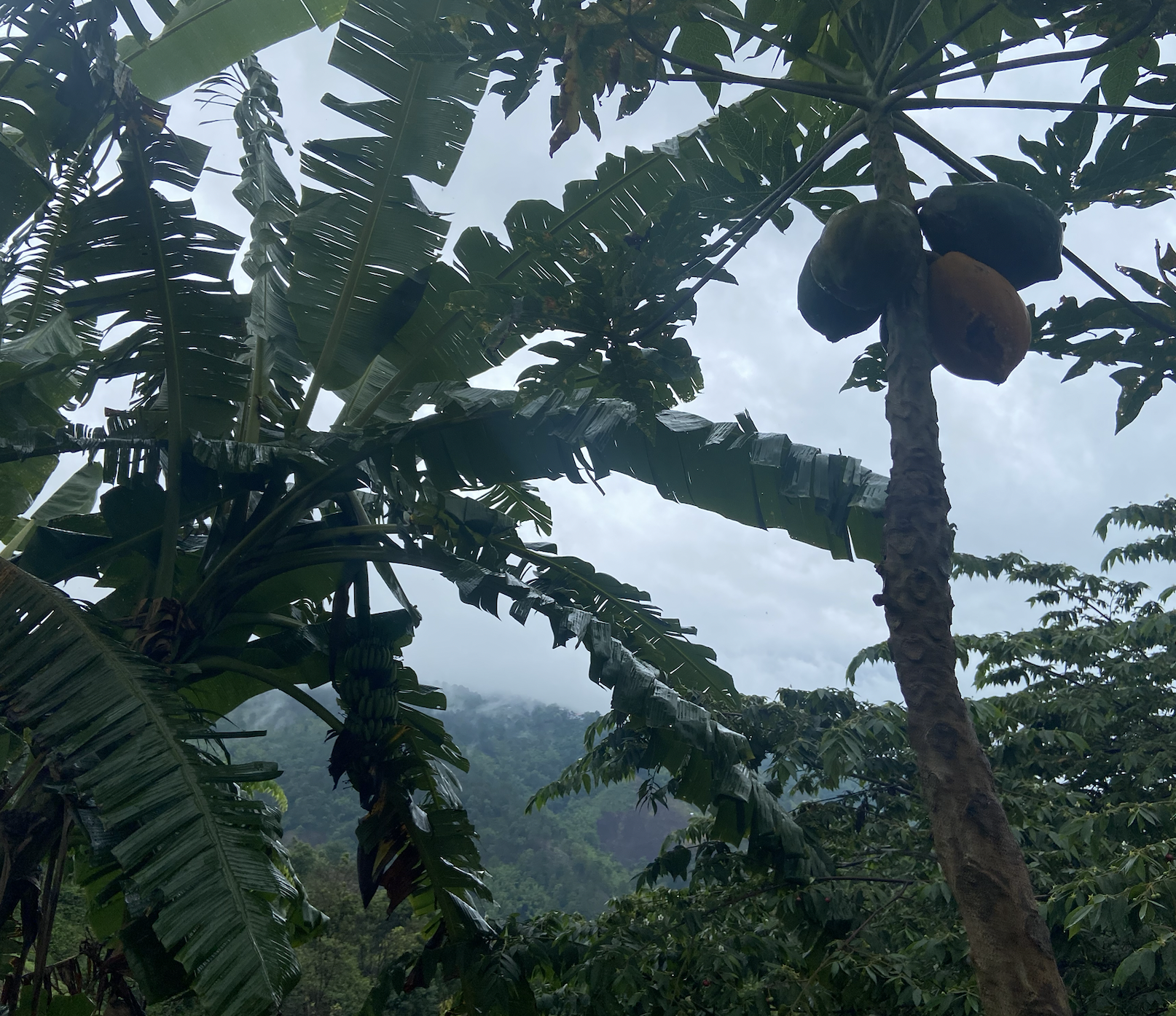
Local Foods and Cooking
- using all parts of a plant and of an ecosystem
- indigenous knowledge –> foraging and local food as opposed to importing
- relation to hill tribe history of migration and needing to be able to forage food locally where they settled
- talk about lunch at the coffee plantation
Our experience with local food use and cooking really revolved around the emphasis of using all parts of a plant, and all parts of an ecosystem. We were presented to indigenous knowledge (through the Ahka tribe) of their use of foraging their local foods as opposed to importing goods. We even got to put this into action. The Ahka leaders brought us along their process in foraging their crops from the hillside, highlighting endless food sources that surround us in that space that we didn’t even know or recognize. Continuously, we collected different things; banana leaves, mountainside berries, herbs, and quickly they turned everything into a beautiful traditional Ahka meal.
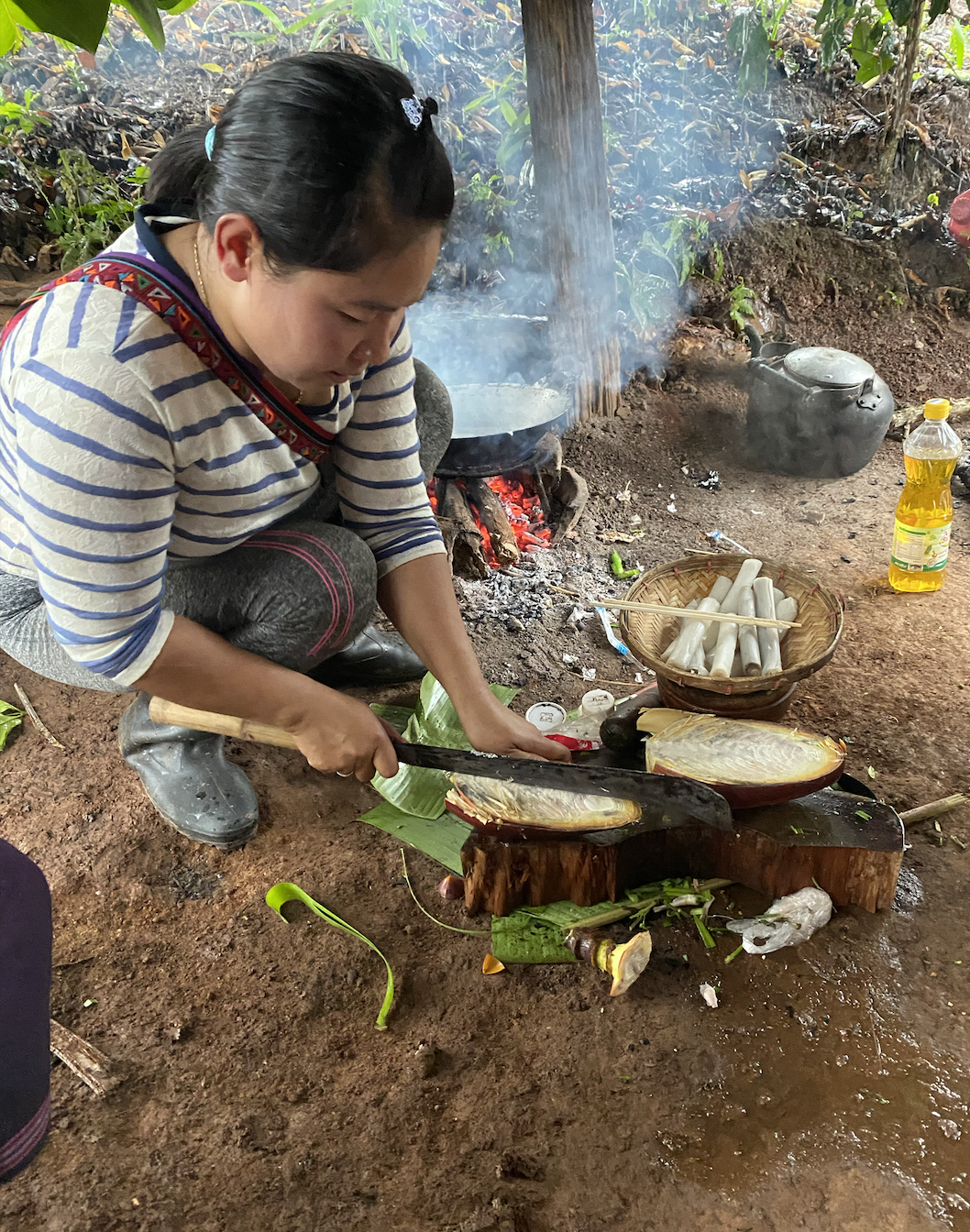
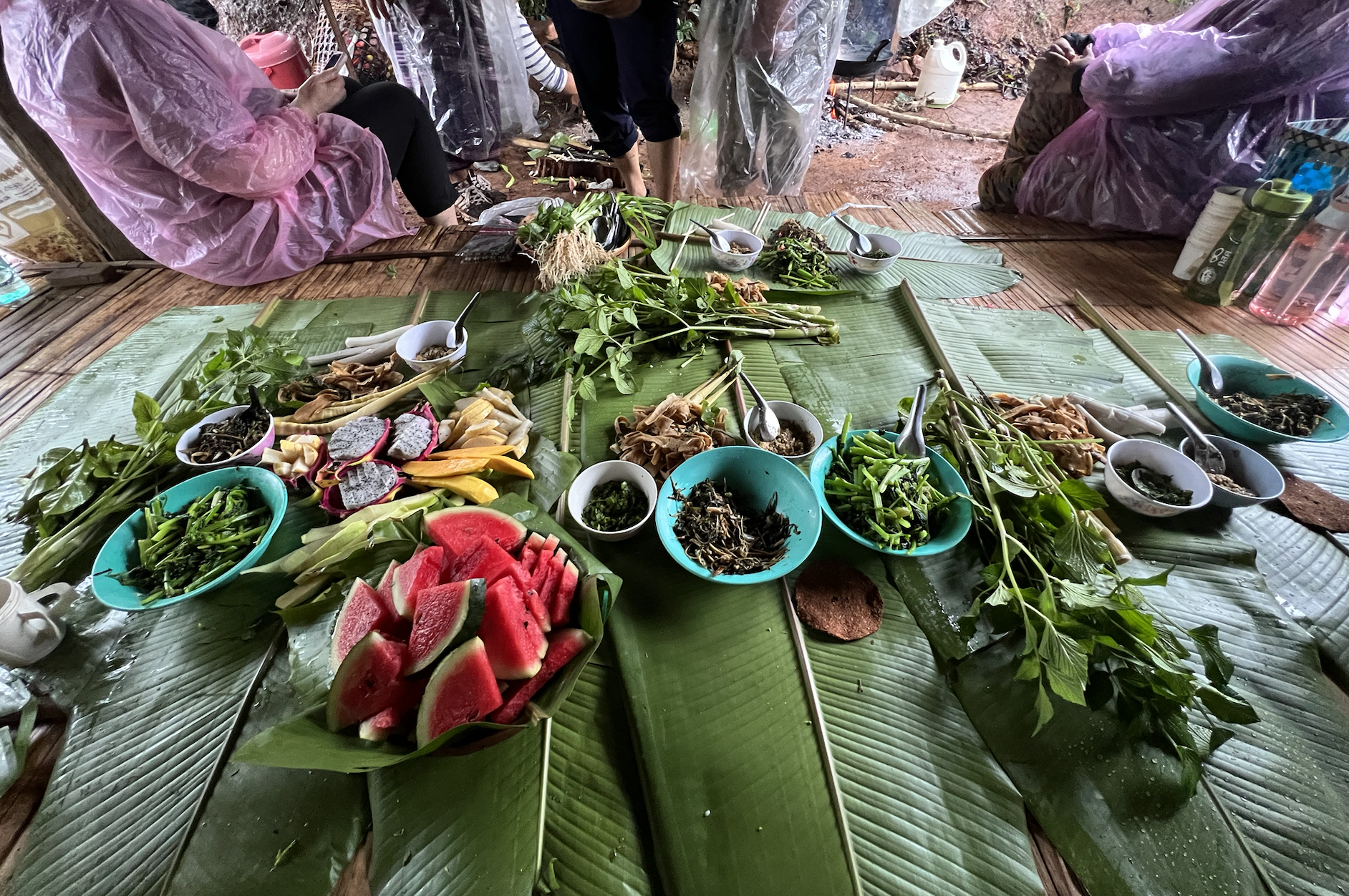
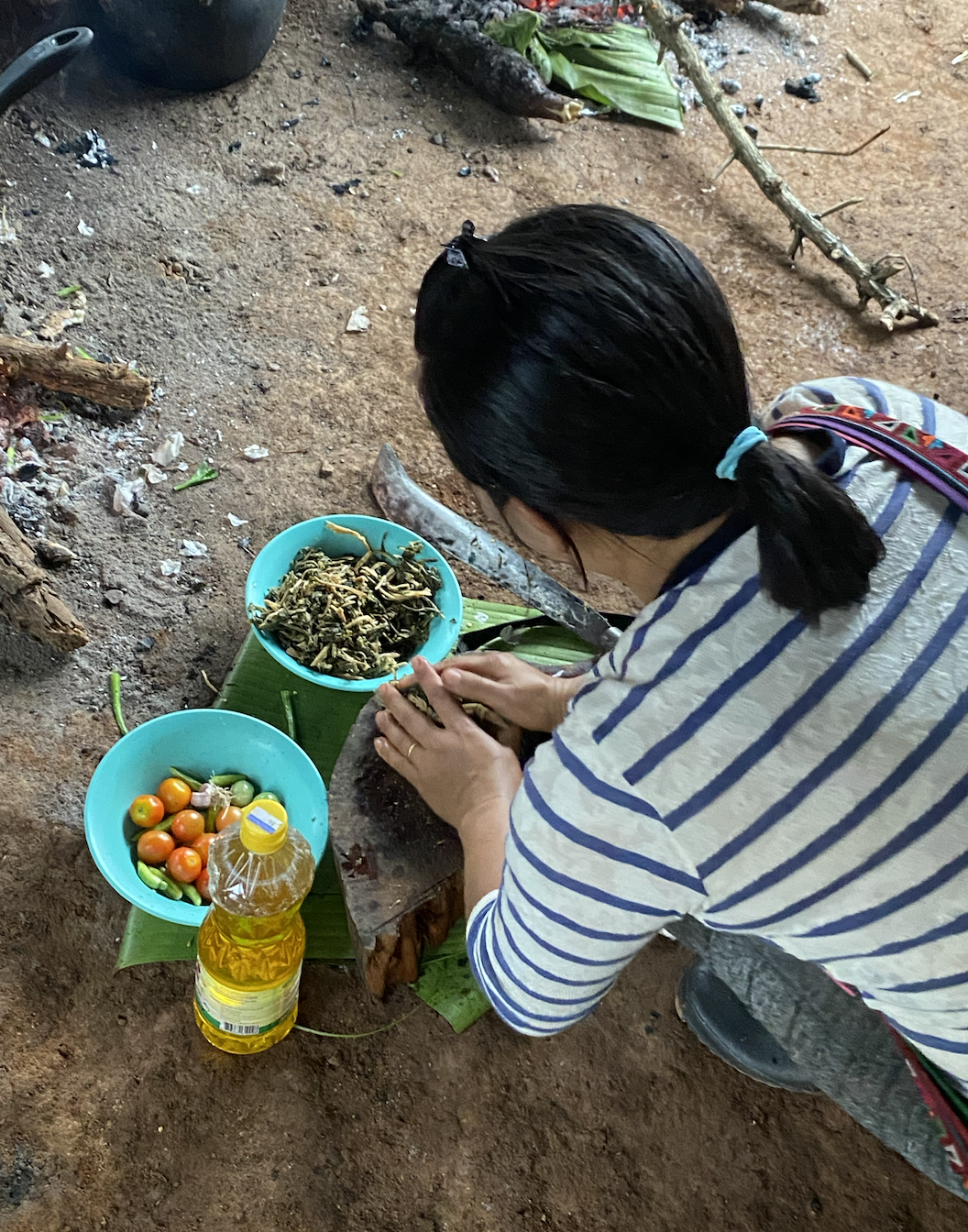
References
Gómez, M.U., Bueno, A.L., León, A.C. et al. Traditional agroforestry systems: a methodological proposal for its analysis, intervention, and development. Agroforest Syst 96, 491–503 (2022). https://doi-org.ezp1.lib.umn.edu/10.1007/s10457-021-00692-w
